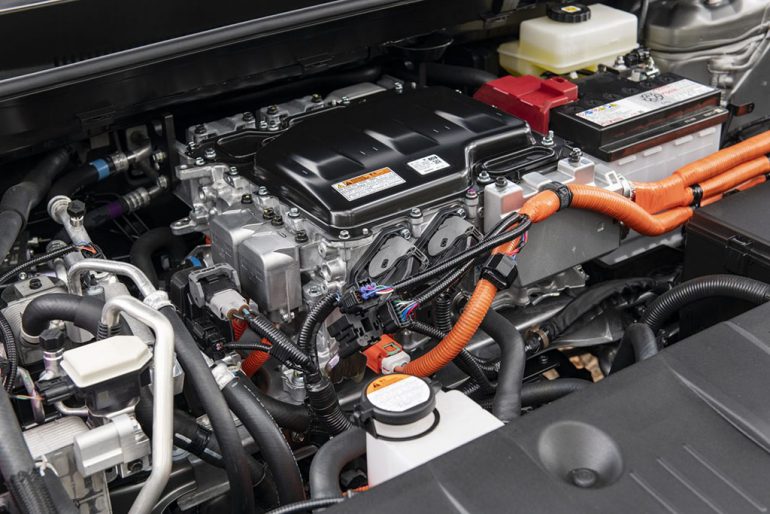
Toyota has become a bit more serious in the development of solid-state battery technology. These advanced batteries have the potential to redefine the electric vehicle (EV) industry by offering superior energy density, shorter charging times, and enhanced safety when compared to conventional lithium-ion batteries. Toyota’s substantial investments in solid-state batteries suggest that we could witness these cutting-edge power sources in commercial vehicles as soon as 2025.
Solid-state batteries differ fundamentally from their lithium-ion counterparts in terms of composition. Traditional lithium-ion batteries employ a liquid electrolyte to facilitate ion movement between the positive and negative electrodes, whereas solid-state batteries use a solid electrolyte. This solid-state design boasts several advantages, most notably an increased energy density. This means that solid-state batteries can store more energy in a smaller, lighter package, ultimately extending the driving range of EVs to numbers that have not yet been seen, suggesting 600 miles or more on a single charge.
Another notable advantage of solid-state batteries lies in their rapid charging capabilities. While conventional lithium-ion batteries may take hours to achieve a full charge, solid-state batteries have the potential to reach full capacity in just a matter of minutes. This breakthrough has the potential to significantly reduce the inconvenience of waiting for an EV to charge, making electric vehicles more accessible and practical for daily use.
Safety is a paramount concern when it comes to battery technology, especially in the context of electric vehicles. Solid-state batteries, with their non-flammable solid electrolyte, offer improved safety compared to their liquid electrolyte counterparts. This design reduces the risk of fires or explosions in the event of a battery malfunction. Given that EVs have large battery packs, this heightened safety is a crucial feature, particularly in cases of collisions.
However, Toyota’s journey to solid-state batteries has not been without challenges. One of the primary hurdles was the identification of a suitable solid electrolyte material capable of efficiently conducting ions while remaining stable through numerous charge and discharge cycles. Nevertheless, Toyota has made substantial progress in this area, and they have recently forged a partnership with Panasonic to expedite the advancement of solid-state batteries.
The collaboration with Panasonic is a pivotal step forward for Toyota, considering Panasonic’s status as one of the world’s foremost battery manufacturers. This strategic alliance will enable Toyota to leverage Panasonic’s extensive experience in battery manufacturing and facilitate the scaling up of solid-state battery production. This partnership is poised to introduce solid-state batteries in commercial vehicles by 2025, with the potential for widespread adoption in the years that follow.
The incorporation of solid-state batteries into commercial vehicles will undoubtedly reshape the electric vehicle market. With their increased energy density and swift charging times, electric vehicles will become not only more efficient but also more appealing to consumers. Furthermore, the enhanced safety features of solid-state batteries will mitigate concerns related to battery fires and explosions, thereby bolstering consumer trust in electric vehicles.
In conclusion, Toyota’s dedication to advancing solid-state battery technology promises to revolutionize the electric vehicle industry. With superior energy density, faster charging times, and improved safety, solid-state batteries offer numerous advantages over traditional lithium-ion batteries. Toyota’s collaboration with Panasonic represents a significant leap toward the introduction of solid-state batteries in commercial vehicles, and it is foreseeable that we will witness these batteries on the road as early as 2025. The future of electric vehicles is brighter than ever, and solid-state batteries will undoubtedly play a pivotal role in propelling the industry forward.

Mike Floyd is a finance executive by trade and a car enthusiast at heart. As a CFO with a keen eye for detail and strategy, Mike brings his analytical mindset to the automotive world, uncovering fresh insights and unique perspectives that go beyond the surface. His passion for cars—especially his favorite, the Porsche 911, fuels his contributions to Automotive Addicts, where he blends a love for performance and design with his professional precision. Whether he’s breaking down industry trends or spotlighting emerging innovations, Mike helps keep the site both sharp and forward-thinking.